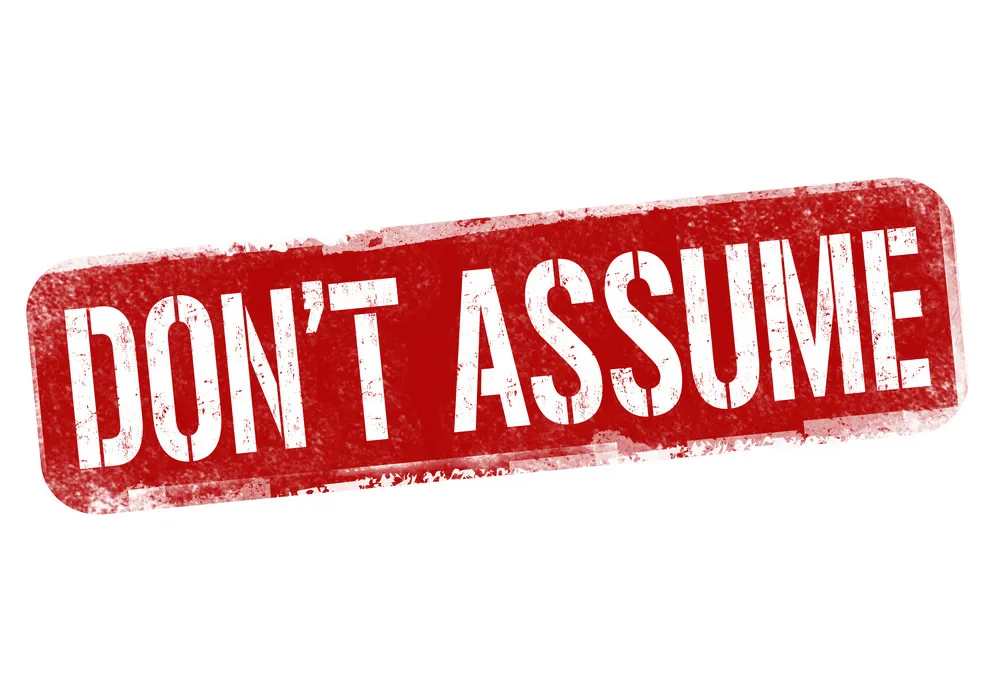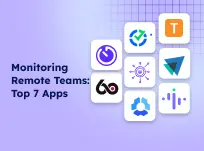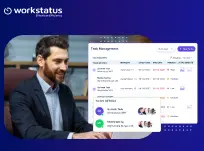Table of Contents
From big corporations to small businesses, even for non-profit organizations conducting workplace investigations is essential for running any business.
Initiating workplace investigations isn’t always an easy task. It involves interviewing both employees and managers, which means you may have to put some ground rules to keep everyone happy and comfortable.
However, conducting workplace investigations can be tricky. It’s also an essential part of HR that can impact the outcome of your company forever.
When an employee has been accused of misbehavior or wrongdoing, it’s up to the management to investigate so that they can find out the truth, punish the guilty and protect the innocent.
But the question is how to conduct your workplace investigations that can significantly impact how effective they are and how long they take.
In this guide, we’ll cover three crucial do’s and three crucial don’ts for conducting workplace investigations that will help you get the job done.
But first, let’s understand
What Do You Mean By Workplace Investigations?
Workplace investigations are a formal means of addressing allegations of inappropriate or illegal behavior. They usually involve interviewing witnesses and collecting evidence to determine whether an accused person has violated company policy or broken the law.
Workplace investigations can be conducted internally, by the company’s own human resources department, or by an outside investigator hired by the company.
The purpose of a workplace investigation is to gather facts related to the incident or violation that has allegedly taken place. The goal is to determine what happened, who was involved, and what actions need to be taken to address the situation.
If the investigation finds that an employee has engaged in improper or illegal behavior, the company may choose to discipline the employee, up to and including termination. The company may also be required to report any criminal activity discovered during the investigation to law enforcement authorities.
Workplace investigations can be complex and time-consuming, so it is essential to ensure that they are conducted systematically and thoroughly.
Now let’s look at three crucial do’s for conducting workplace investigations:
Dos
1) Create An Effective Investigation Team
 It is essential to create an effective investigation team when conducting a workplace investigation. The team should be composed of individuals with the necessary skills and experience to conduct a thorough and fair investigation.
It is essential to create an effective investigation team when conducting a workplace investigation. The team should be composed of individuals with the necessary skills and experience to conduct a thorough and fair investigation.
Some key components of an effective investigation team include:
- A senior manager or HR representative who has the authority to decide and take action
- An investigator who has experience conducting workplace investigations
- Individuals with expertise in the relevant areas (e.g., employment law, human resources, etc.)
The investigation team should be able to work collaboratively and effectively communicate with one another to ensure that they conduct the investigation in a timely and efficient manner.
It is vital to ensure that we avoid all potential conflicts of interest when assembling a team. All members should be able to work together collaboratively towards a common goal, delivering a fair and accurate result.
2) Take Action Promptly
One of the most important things to do when conducting a workplace investigation is promptly take action. You can collect relevant information and testimonies while they are still fresh in people’s minds by taking action quickly. Prompt action can help ensure that the situation does not escalate.
There are a few key components of a workplace investigation that should be kept in mind:
- You need to understand the complaint and interact with the parties involved to get as much information as possible to make an informed decision.
- Consider all available evidence and be sure to document everything from start to finish.
- Review your findings with a point of view, and also sometimes, it is helpful to have someone else review your results for unbiased feedback.
When allegations of workplace misconduct are brought to your attention, it is essential to take prompt and effective action.
Depending on the seriousness of the allegations, you may need to hire an experienced investigator to investigate. Taking prompt and effective action will help ensure that your workplace is safe and respectful to all employees.
3) Document And Retain All Evidence
Another important rule of conducting a workplace investigation is documenting and retaining all evidence. This includes written documents and email correspondence, voicemails, social media posts, and anything else that may be relevant to the allegations being investigated.
To avoid the spoliation of evidence, it is vital to take meticulous notes and maintain all records in a secure location throughout the investigative process.
Doing so will ensure that you have a thorough record of the events in question and will help to protect your company if the matter is later taken to court.
While interviewing all the parties and witnesses involved, it’s essential to be impartial during these interviews and avoid leading or biased questions. Remember that you’re trying to understand what happened, so gathering as much information as possible is essential.
Finally, once all the evidence has been gathered, it’s time to decide. To do so, you’ll need to evaluate each piece of information you’ve collected to determine if it is relevant to your investigation. If so, you can use that information as a basis for your final decision.
As of now, we are familiar with the three crucial do’s of conducting workplace investigations. Let’s now look at 3 crucial don’ts for conducting workplace investigations.
———————————————————————————————————————————-
Also Read: Workforce Analytics: Trends, Benefits, and KPIs
———————————————————————————————————————————–
Donts
1) Don’t Assume Anything
 Don’t assume that just because someone is accused of something, they’re automatically guilty. One of the worst things you can do in a workplace investigation is to make assumptions about what happened without knowing the facts.
Don’t assume that just because someone is accused of something, they’re automatically guilty. One of the worst things you can do in a workplace investigation is to make assumptions about what happened without knowing the facts.
This can lead to an innocent person being unfairly punished or, even worse, a guilty person getting away with something they shouldn’t.
Similarly, don’t assume that just because someone denies something, they’re automatically telling the truth. It’s important to consider all evidence and testimony when deciding what actually happened. Jumping to conclusions based on partial information is a recipe for disaster.
The key is to remain open-minded and to consider all the possible outcomes before deciding. You can’t assume that the person you’re investigating is guilty or innocent, and you can’t assume that you know all the facts. The only thing you can do is collect as much evidence as possible and make a determination based on that evidence.
2) Do Not Dismiss An Investigation Too Quickly
One of the worst things you can do during a workplace investigation is to dismiss it too quickly. Do not dismiss an investigation too quickly.
This sends a clear message to your employees that you aren’t taking their concerns seriously and could discourage them from coming forward in the future.
It is essential to take the time to investigate a complaint and not do so hastily. Jumping to conclusions without all the facts can lead to severe consequences. If you are presented with a complaint, take some time to carefully review the situation before deciding.
Be patient and thorough when investigating any potential wrongdoing in the workplace. By taking the time to fully assess the situation, you can ensure that any allegations are taken seriously and that the appropriate actions are taken if necessary.
3) Don’t Get Distracted By Irrelevant Information
When conducting a workplace investigation, one crucial thing to avoid is getting sidetracked by information that doesn’t matter. It’s easy to get caught up in the details of what happened, but it’s essential to focus on the facts that are relevant to the investigation.
Stick to the facts and avoid getting bogged down in superfluous information. Investigators need to stay focused on the facts and evidence related to the allegations.
Pursuing irrelevant information can not only lead to wasted time and resources but can also jeopardize the entire investigation by muddying the waters and raising doubts about its accuracy.
So when investigating, investigators need to stay disciplined and focused on the task at hand to collect accurate information and make fair decisions.
You can use employee monitoring software such as Workstatus to keep track of employee activities and investigate them efficiently.
Workstatus The One Stop Workforce Management Solution
Workstatus is one of the leading employee monitoring software on the market today. Not only does it help businesses keep track of their employees’ time and productivity, but it also helps them manage payroll, invoicing, and more.
With Workstatus employee monitoring software, you can easily see which employees are working on what tasks and how much progress they’re making. This way, you can quickly identify any bottlenecks or areas where employees might need more help to stay productive.
So what are you waiting for?
Sign up now and claim your free trial today.
Conclusion
Conducting workplace investigations is a delicate but essential task for any HR department. There are a few key things to keep in mind when investigating to ensure it is fair and objective.
First, it is essential to maintain confidentiality throughout the process. This means only speaking to those who need to know about the investigation and keeping detailed records.
Second, be sure to document everything thoroughly. This includes interviews, correspondence, and evidence.
Third, avoid making assumptions or jumping to conclusions. It is essential to remain impartial and open-minded throughout the investigation.
Lastly, be sure to follow up with employees after the investigation is complete.
By following these guidelines, you can conduct a thorough and professional workplace investigation for your organization.
That’s all for today. We hope you like it. If you have any queries regarding our guide or want to give us a suggestion, then comment below.
FAQs
Q: What should I do if I receive a complaint about an employee?
A: Immediately document the complaint and then consider whether to investigate it yourself or consult with someone who is familiar with workplace investigations. You should also notify any relevant supervisors, Human Resources personnel, and the accused individual.
If you decide to undertake an investigation yourself, follow your company’s policies and procedures to ensure a comprehensive examination of all available evidence for complete fairness.
Q: What should I avoid when investigating workplace misconduct?
A: It’s important to remain neutral and unbiased throughout the process. Pay attention to certain details, such as the necessary confidentiality surrounding investigations. Additionally, ensure that information gathered from witnesses is used properly and accurately.
Finally, ensure all parties involved are treated with respect and their rights respected at every stage of the investigation; avoid making premature conclusions or jumping to any inflammatory conclusions based on what you might hear during interviews or document reviews.












